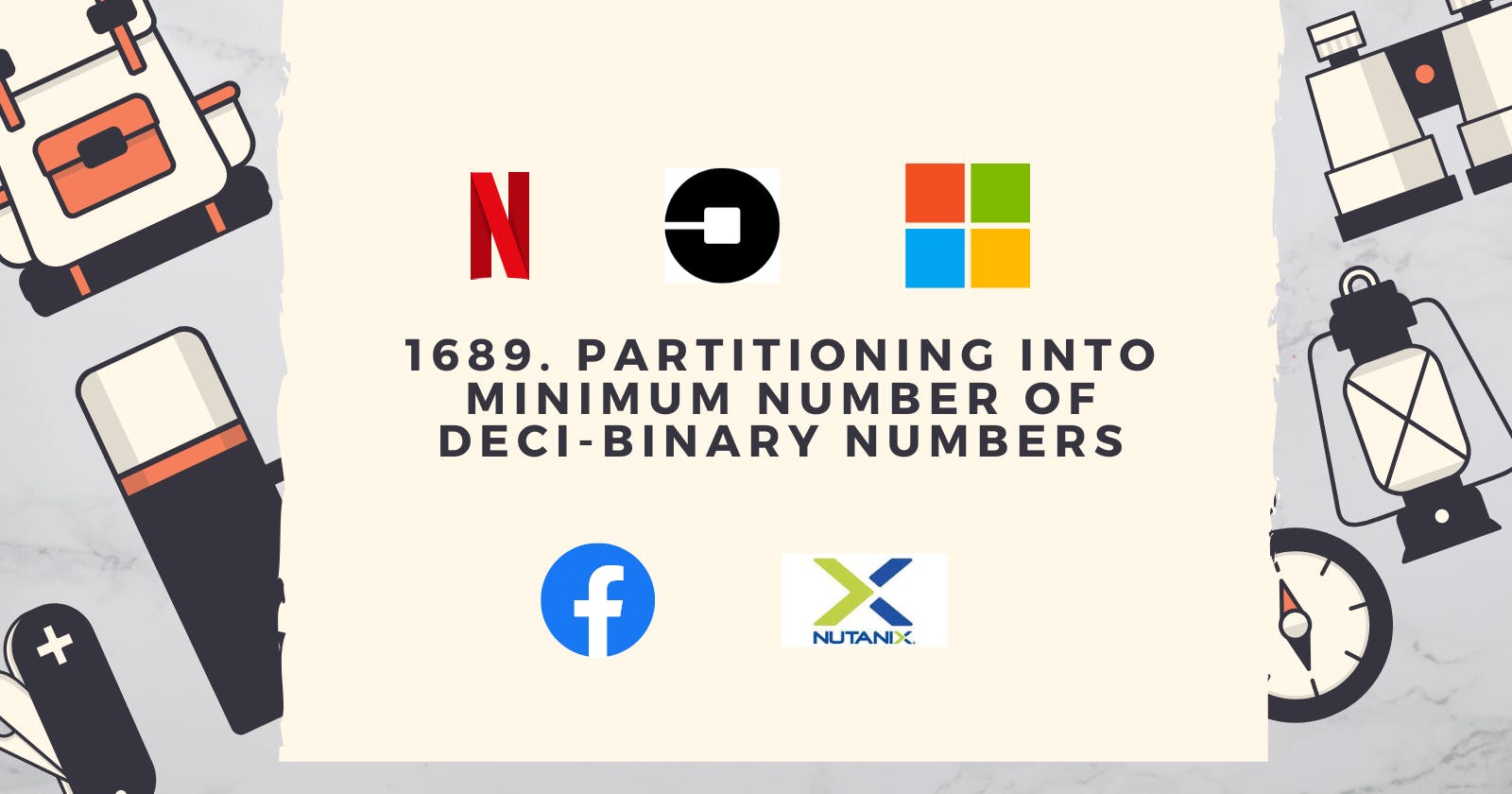1689. Partitioning Into Minimum Number Of Deci-Binary Numbers (27/06/2022)
Problem:
A decimal number is called deci-binary if each of its digits is either 0 or 1 without any leading zeros. For example, 101 and 1100 are deci-binary, while 112 and 3001 are not.
Given a string n that represents a positive decimal integer, return the minimum number of positive deci-binary numbers needed so that they sum up to n.
Example 1:
Input: n = "32"
Output: 3
Explanation: 10 + 11 + 11 = 32
Example 2:
Input: n = "82734"
Output: 8
Example 3:
Input: n = "27346209830709182346"
Output: 9
Constraints:
1 <= n.length <= 105nconsists of only digits.ndoes not contain any leading zeros and represents a positive integer.
Solution:
Maximum number of positive deci-binary numbers will be equal to biggest digit present in string
n
class Solution {
public int minPartitions(String n) {
int max = 0;
for(char c: n.toCharArray()) {
max = Math.max(c - '0', max);
}
return max;
}
}
Time Complexity: O(N) where N is the length of the string
Space Complexity: O(1) as we are not using any auxiliary data structure

